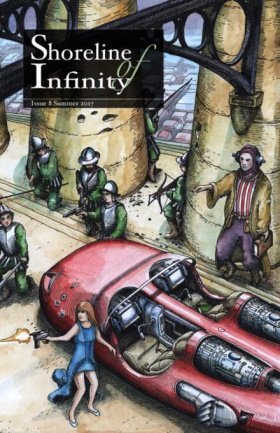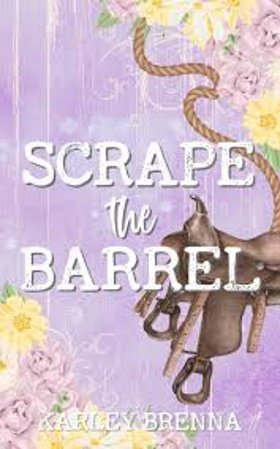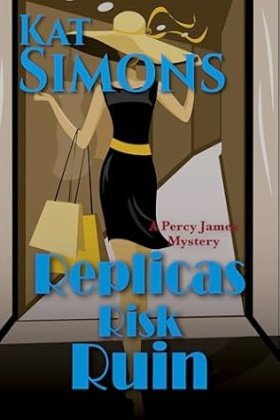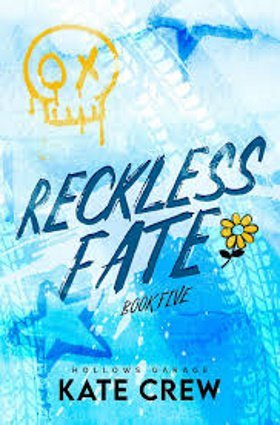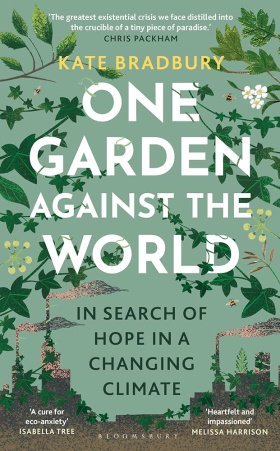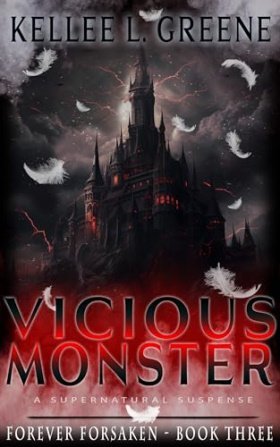-Noel Chidwick

Noel Chidwick: How would you describe your early years growing up, and do your experiences influence you as a writer?
Chris Kelso: I was a bit of a depressed kid – well, yeah, that would be an understatement. I got bullied quite a bit. I had milk-bottle specs and a crazy blonde bowl haircut. I was socially inept, majorly introspective and terrified of absolutely e-v-e-r-y-thing. Leaving my home town of Cumnock for Kilmarnock was enormously stressful. I had to join a new school, and I had to grow up fast. Predictably, the bullying intensified and I retreated into literature, arty films, weird music and, of all things, an obsession with football (which still didn’t make me any more popular I should add!). It’s strange, I still feel like that young boy on the receiving end. I’m much better at hiding my insecurities now though. Christ, I think I’d have bullied myself if I went back in time! I was this ridiculous, spectral presence. I brought most of the misery on myself, not that it excuses the victimisation – but it got to the stage where I enjoyed being left out. It gave me an excuse to explore the darkness further.
NC: Can you tell us a bit about your writing and motivations?
CK: In my books I am always writing from the perspective of the outsider. Of someone looking in from the outside. Someone trying to squint through the darkness for the tiniest mote of light. The underdog fascinates me – I am Scottish I suppose! It’s much more interesting for me to drag tortured psyches through bizarre alien landscapes. Maybe I’m trying to make my own superhero, one who succeeds without donning a spandex suit or obtaining superhuman abilities. I actually find Peter Parker much more interesting when he’s just a put-upon snot-nosed kid. If he’d managed to outwit the Green Goblin or Dr Octopus without the radioactive spider bite he would’ve been much more relatable. I’m not so much interested in the protagonist overcoming adversity, although I realise that’s a depressing read for most people. I’m interested in how failure changes people. How they deal with abject rejection and heartache.
NC: When did you start writing? What kind of stories did did you write at the beginning?
CK: I was probably 8 or 9. I wrote a crazy story about this alien, made of bogies, who came to earth and took up residence in the mucus-filled caves of a human boy’s nose. My primary 4 teacher was really disturbed by it and I seem to remember her using it against me at a parents evening chat with my parents – but I wrote the story straight faced! I wasn’t trying to upset anyone or come off glib, I just wanted to write about an alien made of bogeys. To me it was legitimate short story subject matter.
NC: It’s always fascinating to find out which books and authors kickstarted a writer’s imagination - what books were you reading as a teenager? Which writers inspired you into becoming a writer?
CK: I was reading anything transgressive or dark – I was a pretty depressed young man, Noel. When I sit down and think about it, I graduated from the Goosebumps books, to 2000AD comics, to fairly extreme adult literature in a relatively short space of time. I distinctly remember thinking Lanark by Alasdair Gray was the ultimate pinnacle of artistic achievement at 16 – I still kind of think that to be honest. I remember Naked Lunch by Burroughs and a lot of Samuel Delaney’s work (his non-SF stuff, like The Mad Man and Hogg) all having a profound influence, they were eye opening, unapologetic. At 17 there was Blood and Guts in High School by Kathy Acker and a LOT of Bukowski – this was my ‘punk’ phase. From there I ran the course of the new wave, speculative writers with something interesting to say and saying it in an interesting, confrontational way really appealed. Dangerous Visions [edited by Harlan Ellison] was a game changer. It introduced me to Philip José Farmer and Michael Moorcock and I measure my prose up to their standard every time. I like that SF didn’t have to be space operas and laser beams (although I have a soft spot for their naiveté as I approach 30). Introduce a brief love affair with the Russians and Hubert Selby Jr, and you’ve about got my teenage, post-university pallet to the letter. I had a healthy hodgepodge of inspirations.
But really, I’ve always wanted to be a writer, socialise with writerly people. I’ve always admired authors and fantasized about being one when I grew up, as young as 9 or 10 I remember that feeling. You basically get to sit around all day expressing your own little stories and occasionally selling them on to publishers. You get to pick a cool front cover and have someone else typeset the thing for you so it looks good. The life of a published author is pretty sweet, even if the money is awful! When it comes to ego fondling, there’s not much that can top it. I think I’ve just always been into the lifestyle and the freedom of writing too. I really love sharing ideas and I think we achieve a whole different level of intimacy through creative collaboration. That’s my idea of inspirational. Hope that doesn’t sound trite.
NC: I’d describe your writing style as punchy, vibrant and direct. A distinctive writer’s voice is important – how did your voice evolve and develop? Was it instinctive, or something you have worked on over time?
CK: It came out naturally. I had a lot of pent-up frustration that I wasn’t articulating. I’d just dropped out of university and my girlfriend had dumped me. I wrote like an angry little man with no filter. Writing was a release. It was therapeutic. I come across as much more self-assured in my narrative voices than in real life. Writing let me be other people, angry ones who wanted to revel in the abyss. It’s not an affectation though. That self-assured, ballsy wee man is in me somewhere. He must be. Buried deep down maybe, shackled – but he’s in there nonetheless. He comes out when I’m in front of a keyboard. Bloody lucky too.
I think I’d like to tame him a bit. He can be a bit of a force of nature and that’s always exhausting for a reader. I think we’re always trying to perfect a style and as an artist it’s difficult not to pick holes in your own work. I would eventually like to write something that appeals to a wider audience. By that I don’t mean write schmaltzy romance books or high fantasy, nor would I consider censoring myself – but I think the essence of what I’m trying to say isn’t such an inaccessible idea (the idea that we want to belong to something, that we’re pissing against the wind). I just need to crack the template that makes this concept appealing to a broader audience.
NC: You’re obviously inspired by William Burroughs - what attracts you to that style of writing?
CK: Burroughs did whatever he wanted. He was a punk rock pioneer. At a time when I needed a real shot to the arm, a new hit, Naked Lunch came into my life. He experimented with narrative, with form and typeset. He made books into art objects. Plus, he just never seemed to give a shit. The writing was in your face and possessed a kind of punk energy. Basically it’s everything I wish I was in real life but will never be. He can teach you a lot about being an artist and about integrity.
Burroughs was a superstitious fellow too; I relate to that. While I’m not religious at all, I do have some irrational beliefs. One tradition I’ve adopted from him is this – I finish the book, get it published then I never read that book again. If I never read the book again then it won’t be a complete failure. I’m not even that superstitious. Depending on what your idea of failure is, I think it’s a solid tradition that’s seen solid results.
NC: Anything you wouldn’t write about?
CK: Absolutely not. There is no subject I’ll shy away from. I might alter the way I approach something just to make sure the writing doesn’t come across as glib or totally insensitive, but generally – no – I won’t back away from anything. I think I’ve covered most, if not all the taboo subjects, in my writing. Those are the subjects that are interesting! In fact, I might steer clear of bestiality because, well, I just don’t have the imagination to explore that particular area.
NC: So far your works are shorter novella/novelette length – when will we see the Chris Kelso pan-galactic space operatic six-volume box set?
CK: Ach, I’m not much of a Peter Hamilton-style writer. I keep my books mercifully brief. In saying that, I have just written a 300 pager – a sequel to my existential horror novel Unger House Radicals. It’s the most ambitious project I’ve undertaken, and, astonishingly, it only took 4 months to write. Then there’s I Dream of Mirrors. It’s probably the most complete novel I’ve written, the most cohesive. It says everything I’ve been trying to say for years. I suppose it’s taken me 12 books to get to this point and I’ve finally worked out how to communicate what I want to say.
NC: You write, you draw, you’re a musician: do you envisage combining these talents into one project? If so, what would it be?
CK: Yes! There will be a project coming soon. I can’t say much about it yet, but I’ve got the go-ahead to make my first comic book. The script is already finished. I’ve always been in and out of bands. I’m nowhere near good enough to be in a jazz band yet. When I become technically proficient enough I’ll pack it all in and tour with a jazz troupe. I have too many other interests though, it’s debilitating. I’m a big cinephile too. I’d love to get a script produced. I came so close this one time and got burned. Then there’s the insane stepson to consider. He’s a bloody riot a minute.
NC: What are you working on at the moment, and what’s about to appear?
CK: Loads of stuff! I have a ak of esoteric horror stories out with John Langan and Don Webb; a bizarro collaboration with Tom Bradley about a journalist who stumbles across London’s sex-cult underbelly; I Dream of Mirrors, an existential SF novel, is with the esteemed editor Andrew J. Wilson and will be out through Shoreline of Infinity soon; I’m also editing a Seb Doubinsky tribute anthology. There’s the sequel to Unger House Radicals called Shrapnel Apartments in amongst all that. Plus a bunch of other stuff in the pipeline. I just started an imprint of Rooster Republic called RoosterVision. It’ll be similar to the Centipede Press non-fiction books about cinema and we’ll be releasing the first book in about a month. It’ll be a busy year.
NC: I’m looking forward to all this. Chris, thanks for your time.
The Folger Variation
abridged extract
Chris Kelso
Art: Chris Kelso

They say it was a gas leak that demolished both five-storey apartment buildings. The explosion blew out windows over a block away, sprinkled debris onto an elevated commuter railroad track and cast a mushroom cloud of smoke over the skyline. It was insane, took me almost four years to get over Deborah’s death.
I hit the drink harder and harder, doing Dexedrine just to stay awake, throwing more anthracite onto the fire until I was sliding blindly through life on rivulets of my own bad judgement. When you lose love, at first anyway, it feels like the end of everything. Those four years remain a complete blur. I remember I found some incredible drugs during that period of roaming the wilderness. For a brief time I hung around with a gang of kids who loved Pancake Patterson and were obsessed with synthesising fictitious drugs – Korova milk bars (made with mescaline and opiates) and ephemerol (which were really just mushrooms ground into a paste). We’d take hits from asthma inhalers and store the drugs in ear drop containers. There was even this drug called SOAP that worked just like real soap, but when you bathed with it a microparticulate entered your pores and the high was, well, simply unparalleled – you had to be careful you didn’t slump into your bath and drown though.
Those experiences were much less mind expanding than you’d think. People were off fighting in the Kinesis wars battling an alien virus of the mind, but I sometimes think the drugs we took did more harm to a man’s brain than the poor soldiers on the battlefield who were getting crushed to smithereens, 10 synapses at a time. Miraculously I somehow managed to keep my position in the e-resource library. The library was the only real job I ever loved, I was grateful to’ve kept it. I know I bitched about it all the time but compared to other jobs I’d had it was a fuckin’ cake walk! Course, before the library I’d worked as a ditch-digger for some Ursa Minor family funeral company, worked as a flunky on a freighter, built with huge girders and an expensive-looking armour plated deflector shield, that hung suspended in space like a hunk of deformed scrap metal – and as a dishwasher on one of those battlecruisers. I never saw any action from the wars, thank god! Every time it was the same deal. After a fortnight on the job I’d get that itch. I’d say – Arty, why are you condemning your soul to suicide? Then I’d pack the job in, toss my shovel or my keys or my apron in the direction of the boss and go – see ya! – casual as you like. Jesus, I was a ballsy little sonofabitch back then.
At the library I had a real sympathetic boss called Janine who did a great job covering my ass. I told her I was depressed but the truth was that by this stage I was blunt to the core. I will never forget Janine and all the strings she pulled.
Of course I contemplated using the time machine my grandfather gave me to go back in time to save Deborah, to prevent the Kinesis wars from ever happening, but I was terrified to use the damn thing. I didn’t really think it worked yano, but I wasn’t about to take the chance
•
Eduardo was a porter working in a basement nearby, an older gent of about 55 with pockmarked skin and big dark eyes. He was originally from LA and claimed to’ve played Russian roulette with Pancake Patterson. Guess there was no reason to doubt him. I lived with him for a wee while. We originally met through snooker tournaments and started getting together at The Wifebeater every second Sunday when he had the night off.
Eduardo occasionally talked about the Kinesis Battles that swept through the US and detailed the coldness of war seeping into the mud and mortar of trenches in the machine gun night. He saw the brains of his comrades turned to fondue by enemy drones, saw their smoky, scooped-out eye sockets scoured of any recognisable humanity, tasted their burning flesh when the food ran out. Since the wars Eduardo had become a little slow. Apparently one of the viruses had caught him, put his brain in a vice-tight grip until fluid oozed from it like a wrung-out sponge. I don’t know how he survived. He couldn’t remember either. What exactly did he fight for? What was he coming back for – a dead wife and a dead-beat son?
I kept getting up every day for work. Sometimes I’d punch in late but at least I kept showing up. At the weekends I’d play snooker with Eduardo. He kept me on the straight. There’s no way I could’ve pulled myself up from the mire without him. Gradually I got better. Started jogging and taking better care of myself. Deborah became a foggy memory that I was able to bury beneath folds of denial. I started appreciating the smellscapes around me, illuminating gases and banana oil. I still didn’t bother with the time machine my cookie old grandfather gave me on his deathbed. I barely knew the guy, for all I knew he was off his rocker on medication. Scientists were doing amazing things, but time travel was never discussed. You never heard it mentioned man.
•
When Eduardo died of a cardiac arrest I just sort of stuck around at his apartment. I found his body slumped over a chair in an odd position. I remember the sky had gone from grey to hot silver. Quarks of daylight broke through and cast an unflattering luminosity onto the southernmost features of his face. The roads outside were left like shallow rivers once the rain had ceased. I could’ve sworn I saw my hopes and dreams drift along the gutters. Even the neighbours seemed to think I’d always lived there. All evidence of Eduardo seemed to disappear from memory when he passed away. The police never checked in, neither did the rest of his family. An ambulance crew came by, took the body and that was that. There was no funeral.
I know, I know – you think I’m a parasite, right? Well, I was lonely and desperate as a fuckin’ starving dog. I’d been doing so well to stay sober and motivated. People kept telling me to stay optimistic all the time. Optimistic? Optimistic? I’m plenty optimistic I’d tell them! But I remember thinking at the time – how can anyone be optimistic? I’m a good man. I’m a GOOD man! I’m a good MAN! I told a few white lies in my life and that’s all I can be blamed for! Why can’t I catch a break, huh? Why do people I know keep dying? I’d never felt so alone.
The Murderer
I explored the darkness farther, turned left down the hallway and saw the bassinet. A doughy faced kid rocked gently in slow-wave-sleep. I had to be quick. A violent and prolific murderer was on my tail. The murderer was someone I knew well – as well as the limp 4-month old I’d just scooped up to cradle in my arms.
I made for the open fire escape, tried my best not to alert anyone to my presence. I pulled in the familiar odour of front-load washing machine mould for what I hoped would be the last time. It was a miracle the baby hadn’t woken up man, a goddamned miracle – my mother said I’d always been an eerily deep sleeper.
As I was resting my leading foot onto the steel gratings of the outside stairwell, my mother’s scream rang out, compressing the air within the inner pillars of my ears until one of the drums P-P-POPPED! I thought about Deborah and the exploded apartment, the only other time I’d heard anything that loud before. In my panic, I accidentally jerked the baby awake and he was now wailing in unison with my mother. Christ… All the lights suddenly switched on and I was completely exposed. I stooped under the lower sash of the window and clamped loudly down each level on the platform. The rebound of a gunshot came from up in the apartment. My mother’s screaming ceased. I knew the murderer was there and that my parents were both dead – again. The howling of stray dogs on the streets kept ice in my blood.
I reached the second floor, slid the final ladder down and descended to the street. The murderer kept eliminating every variation of Deborah, as if he was trying to take away the one thing that gave my life any meaning. Eventually I stopped trying to save her. All I could do man was try to save myself, you know? The baby continued to wail. I heard footsteps from above in close pursuit. I ran. I was used to running away, always escaping…
Walking Through the Fire
I met Jacob Falcon, a community fireman, antiquarian librarian and small press owner. He thought himself something of a dilettante. I remember he hated all the Ursa Minor chaps, hated the nail bars and hair salons they were opening on every corner at the expense of some vintage bookshop he’d held dear. He smelled of continental cigarettes and claimed to enjoy the taste of madeleines dipped in tea. The press was called ‘Black Arrow’ or ‘Black Adder Books’ or something like that. We met during a snooker game in The Wifebeater. I seemed to meet all the interesting cats in there. We got to talking (him mainly about his espousal of sweet Buddha) and before long he started pushing me to write a fuckin memoir—might be therapeutic he said. Help you get over Debs he said. Eventually I sat down with a second-hand tablet in Eduardo’s back room and churned out a self-indulgent piece of clap-trap that Jacob reluctantly and begrudgingly sent to press and was later released as a limited edition eBook called WALKING THROUGH THE FIRE. The title was a reference to a Charles Bukowski collection and a quote that went – what matters most is how well you walk through the fire. At the time I thought it was pertinent as hell. Course, the majority of the book was a pack of lies; in fact the only interesting thing that had ever happened to me was the gory death of my wife Deborah. I’d let it define me. Hideous creatures continued to weave through the geometries of space and into my life.










